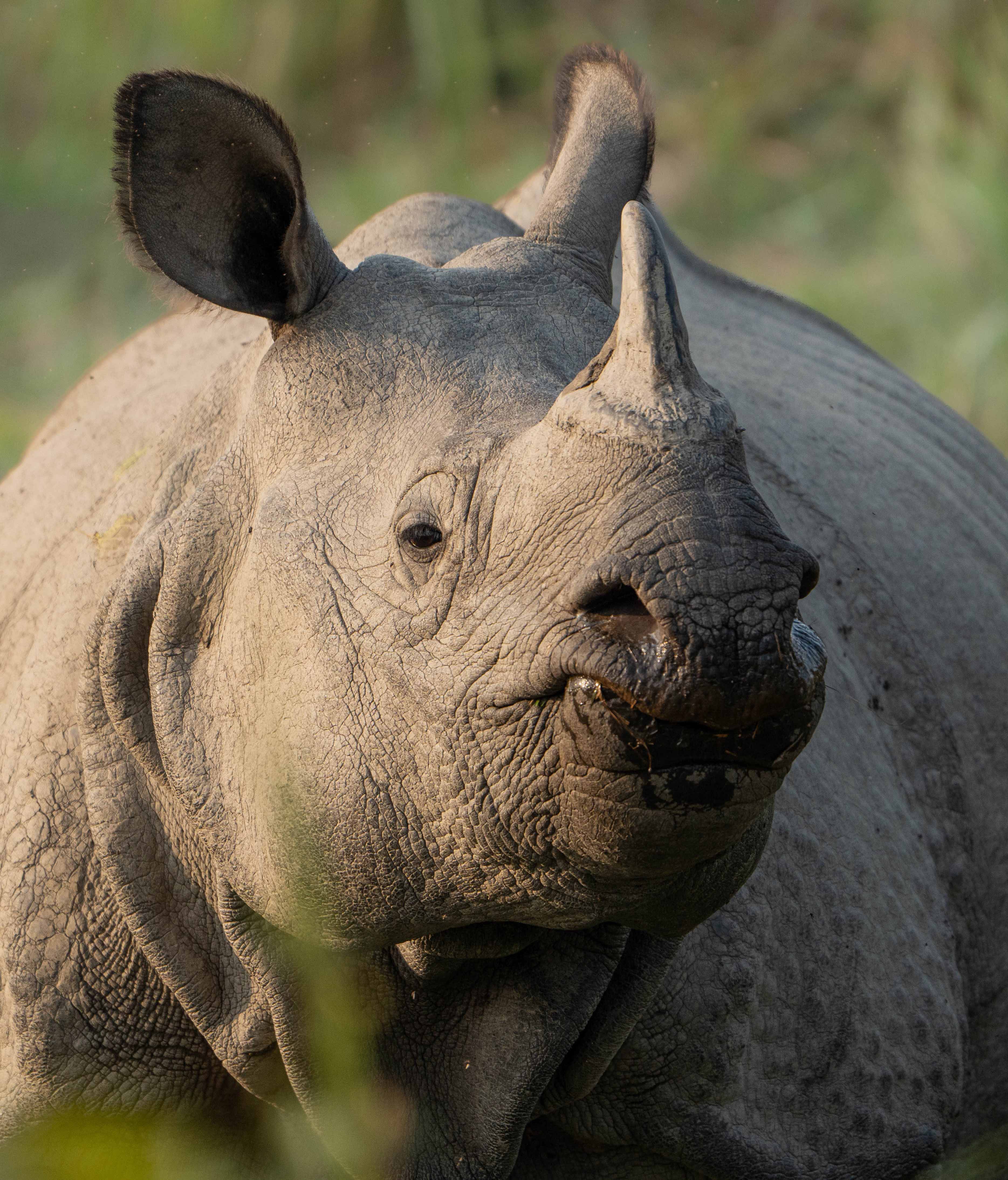Rhinos, with their immense presence and prehistoric charm, are keystone species that hold ecosystems in balance. But what would happen if they disappeared from our jungles?
The answer is alarming: the vanishing of rhinos would trigger an ecological catastrophe, affecting not just wildlife but human communities as well.
In this blog, we’ll explore the potential consequences of losing rhinos and the urgent conservation efforts needed to save these magnificent creatures.
The Ecological Role of Rhinos: More Than Just Majestic Beasts :
Rhinos are more than just iconic symbols of wildlife—they play a critical role in maintaining the health of ecosystems. As mega-herbivores, rhinos graze on vast amounts of vegetation, which helps shape the landscape. By keeping the grasslands open, they allow other smaller species, including plants, insects, and birds, to thrive. Without rhinos, grasslands could become overgrown, which in turn could affect the availability of food and habitat for other animals like antelopes, elephants, and birds.
Additionally, rhinos help in seed dispersal. The seeds they consume are deposited across vast distances, allowing for new plant growth. This promotes biodiversity and ensures that different plant species are spread throughout the jungle. Without rhinos, this process would diminish, potentially leading to a decline in plant diversity.
The Domino Effect: How Rhino Extinction Affects Other Species :
The loss of rhinos would create a ripple effect throughout the food chain. Herbivores that rely on rhino-managed ecosystems would find it harder to survive, leading to reduced populations of other species. Predators, such as lions, leopards, and hyenas, that rely on these herbivores for sustenance, would also suffer, disrupting the delicate balance of the food web.
Furthermore, poaching, a major driver of rhino extinction, has broader impacts on the overall security of protected areas. As poaching operations become more lucrative, they often lead to increased human-wildlife conflict, destabilising local communities and endangering other species.
Impact on Ecotourism: A Devastating Economic Blow:
Rhinos are among the "Big Five" animals that attract tourists from around the globe. Ecotourism is a major source of income for many regions, especially in Africa and parts of Asia, India. If rhinos were to disappear, tourism would suffer significantly, affecting local economies, livelihoods, and conservation funding.
For countries like India and South Africa, where wildlife safaris are a key component of the tourism industry, the absence of rhinos could lead to a dramatic drop in revenue. This would make it even harder to fund the protection of other endangered species and habitats.
Conservation Efforts
How We Can Save the Rhino?
Thankfully, conservationists are working tirelessly to ensure that rhinos do not disappear from our jungles.
1. Anti-Poaching Units and Law Enforcement -
Increasing the number of rangers and anti-poaching units in rhino habitats has been one of the most successful strategies. Modern technology, including drones and thermal imaging, helps track poachers in real-time, improving response times and reducing rhino deaths.
2. Community-Based Conservation -
Engaging local communities in conservation efforts is crucial for long-term success. When communities are involved, they become stewards of the land, benefiting economically from conservation. Programs that employ locals as rangers or guides can foster a sense of pride in protecting wildlife.
3. Rhino Sanctuaries and Relocation Programs -
Establishing rhino sanctuaries and relocation programs helps create safer environments for these animals. In cases where poaching is rampant, moving rhinos to more secure locations can give them a better chance of survival.
4. Demand Reduction for Rhino Horn -
The primary reason rhinos are hunted is for their horns, which are highly valued in some traditional medicines and for ornamental purposes. Awareness campaigns aimed at reducing the demand for rhino horn can significantly lessen the pressure on wild populations. Legal efforts to combat the illegal wildlife trade are also essential.
5. Breeding Programs and Genetic Conservation -
Breeding programs, particularly for species like the Northern White Rhino, which is on the brink of extinction, play a pivotal role in conservation. Using techniques like IVF, scientists are working to bring back populations from the edge of extinction. Genetic preservation programs ensure that rhinos’ unique genetic diversity is safeguarded for future generations.
The Urgency of Rhino Conservation
The extinction of rhinos would set off a cascade of negative ecological and economic effects that could be irreversible. The species' survival is intrinsically tied to the health of the ecosystems they inhabit, as well as to human welfare in regions that rely on wildlife tourism. Without immediate action, we risk losing not just an iconic animal but an entire web of life that depends on their presence.
Let’s act before it’s too late.


